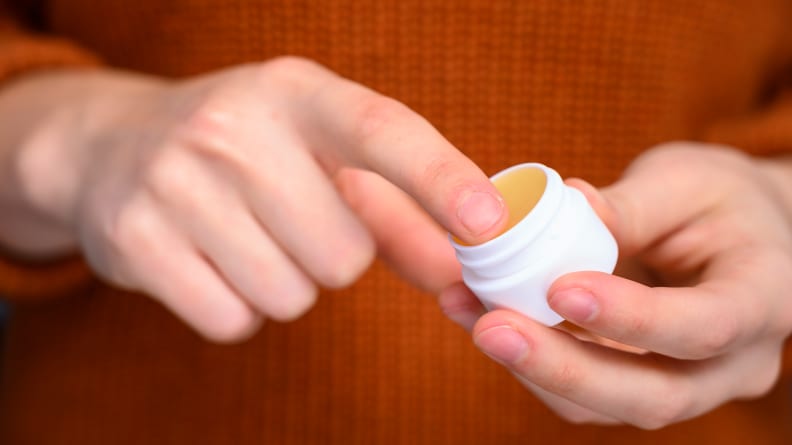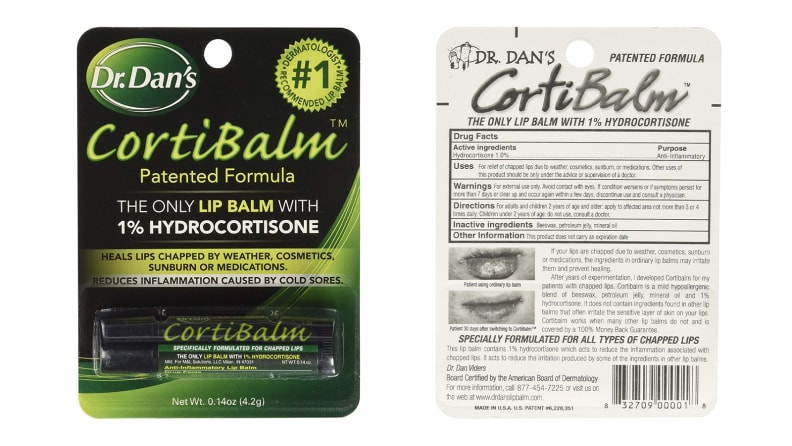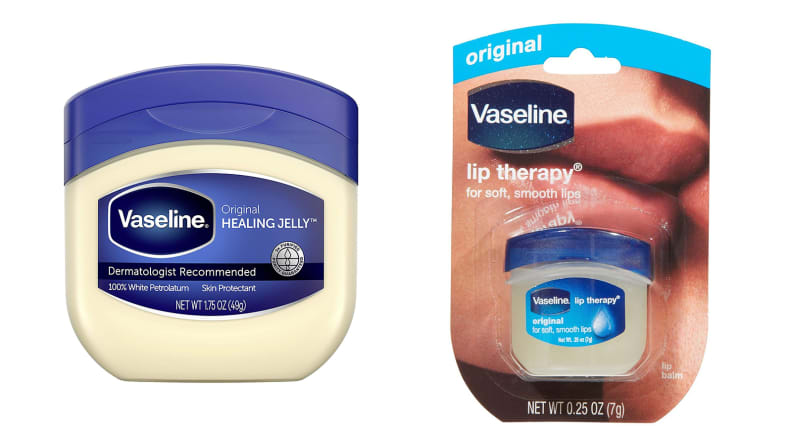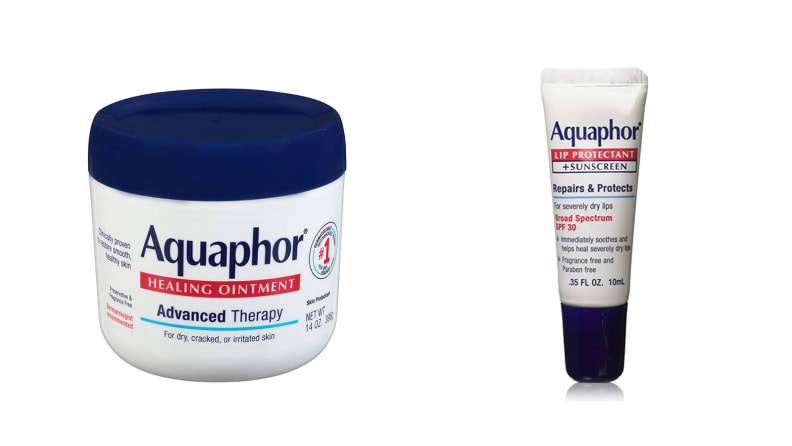Expert advice for avoiding chapped lips this winter
A dermatologist’s advice on coping with the common winter dilemma
Products are chosen independently by our editors. Purchases made through our links may earn us a commission.
Unless you’re someone who slathers a hefty lip mask on every single night and reapplies lip balm every hour on the hour, you probably know what it’s like to have chapped lips. You do what you can to avoid the uncomfortable sensation, keeping a lip product on hand most of the time, but sometimes you forget one, or it’s an especially dry winter day that not even a good balm can hold up to. We’ve all been there, but chapped lips are preventable. And when you do find yourself suffering from flakes and cracks, they’re easily treatable—if you follow this advice.
What causes chapped lips?
The most common causes of chapped lips come from our own human habits, says Dr. Suzanne Friedler, a board-certified dermatologist with Advanced Dermatology PC in New York City. Number one is licking them, something that feels natural to do when we feel our lips drying out. “The more you lick, the drier your lips become,” she says. “Licking them disturbs the moisture and natural oils on our lips.” What's more, once chapping turns into peeling, it’s tempting to pick at the skin to remove loose flakes—but don’t do it. This can cause micro-tears in the skin and lead to even more dryness and chapping.
Another unexpected cause: using a long-wearing lipstick. These products tend to create a film over the lips to seal in the color, which can cause drying.
How can you prevent chapped lips?

Make sure you keep up with applying lip balm.
As mentioned, routinely applying an emollient lip product is the first line of defense against chapping. These products seal in hydration and protect your lips from the moisture-evaporating effects of dry air. Keeping a product on your lips should also prevent you from licking them (well, maybe—more on in that in a moment).
In terms of picking your product, don’t overthink it: The most important thing is that the lip balm you choose doesn’t irritate your skin, whether that’s the fan-favorite Carmex or the jar of Aquaphor you keep on your bedside table already. If you’re not already loyal to a lip product, Friedler recommends starting by looking for something with as few ingredients as possible—the original Vaseline, for example, only contains petroleum jelly—because extra chemicals and fragrance aren’t needed for proper lip protection and could cause irritation in those with sensitive skin or allergies. Also, some of the flavored balms contain sweeteners that make them taste good and therefore you're more likely to lick—which is, as we now know, something to avoid.
How should you treat chapped lips?
So you weren’t diligent with the lip balm and now you’re suffering for it. You have to change your ways: Applying a lip treatment or balm is an essential part of the healing process. It’s also a good idea to take a break from lipsticks while you heal.
Another habit you should change when all your skin, lips included, is dry: Avoid long, hot showers that make the problem worse. “When the weather is really cold and everything is dry, keep your showers short—under 10 minutes,” Friedler says. “Use warm water, not hot. And don’t overuse soaps because soaps can also dry out your skin and your lips.”
If the flaking is driving you crazy, try exfoliating the lips with something mild, like the Fresh Sugar Lip Polish Exfoliator. However, be sparing with how often you exfoliate (once a week should be enough), as it strips your skin of oils, and always follow up with a moisturizing product. And, of course, never exfoliate cracked or bleeding skin.
Still struggling to find relief? Consider running a humidifier in your room. “A humidifier can help to hydrate the air and make all of your skin feel a bit more comfortable,” Friedler says.
Products the dermatologist recommends
Dr. Dan’s Cortibalm Lip Balm

Dr. Dan's Cortibalm uses hydrocortisone to treat inflammation on the lips.
For someone with intensely dry lips, try the Dr. Dan’s Cortibalm Lip Balm, which uses hydrocortisone (for treating inflammation), beeswax, petroleum jelly, and mineral oil to soothe and heal chapped lips caused by weather, cosmetics, and sunburns.
Get the Dr. Dan’s Cortibalm Lip Balm on Amazon for $9.74
Vaseline Petroleum Jelly Original

Vaseline keeps things simple with only one ingredient.
For a tried-and-true, inexpensive solution to your chapped lips, try Vaseline. The original jar only uses petroleum jelly to moisturize and protect the lips and skin. For a smaller version you can take with you anywhere, snag the Lip Therapy tube, which also comes in a variety of fragrances, if you prefer that.
Get the Vaseline Petroleum Jelly Original on Amazon for $1.79
Get the Vaseline Lip Therapy on Amazon for $1.97
Aquaphor Healing Ointment

Everyone should own Aquaphor.
There is practically never a skin problem where Aquaphor is the wrong solution. The ointment uses 41 percent petrolatum (the same moisturizing agent in Vaseline), mineral oil, ceresin, lanolin alcohol, panthenol, glycerin, and bisabolol to moisturize and lubricate the skin and lips and prevent moisture loss. Aquaphor also comes in a smaller size, labeled specifically for lips.
